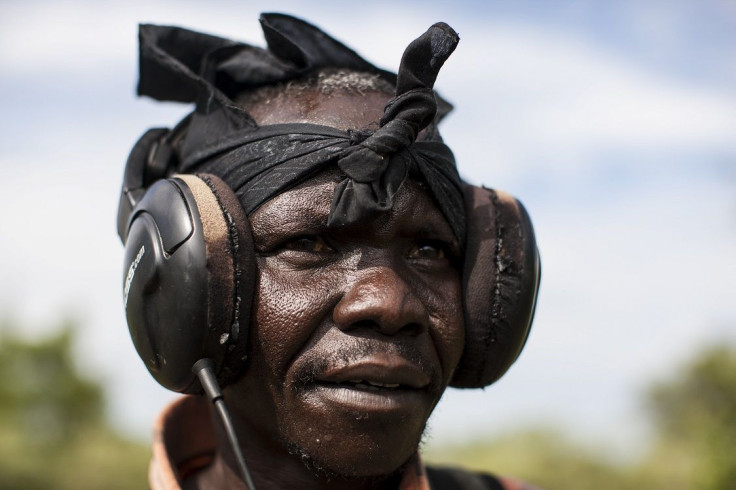New Mining Law in Kenya Set to Attract Foreign Investors

Ranked as one of the world's least attractive places to invest in, Kenya is planning on enacting a progressive mining law before the fiscal year ends on June 30 in order to provide stability to foreign investors and boost investment interest in its mining sector.
While Kenya is east Africa's largest economy, its resources industry does not match up to its neighbor Tanzania, one of Africa's largest gold producers. Kenya ranked third from bottom on the Investment Attractiveness index published in Canada-based Fraser Institute's annual survey of mining companies. The report cited a lack of transparency in the country's mineral title process and "terror threats" as factors behind the ranking. Kenya only beat Hungary and Malaysia in the index.
According to Kenya Mining Secretary Najib Balala, the new bill will usher in a new era for mining in Kenya. "There have been bad practices before, so we want to change that," he said. "This bill is good not only for the government, but also for the industry as it guarantees them stability, it guarantees them rights. It also brings transparency to the process." The government has also taken steps to improve security and eliminate terrorist attacks that killed at least 361 people since September 2013.
The mining industry only represents one percent of Kenya's gross domestic product, due in part to the poor mining regulations that have deterred investor interest. Hence, the country is overhauling its mining code in order to increase its share of revenue from an otherwise potentially lucrative industry.
According to the U.S. Geologic Survey, Kenya is the world's third biggest producer of soda ash, which is used to make glass. It is also the seventh largest producer of fluorspar, used in the production of steel. Other deposits include coal, ruby, sapphire and gold.
Royalty Rates
Under the new law, the government will impose royalty rates ranging from one percent to 12 percent of the gross sales value of minerals. "We are in agreement in principle that they are willing to pay a five percent royalty," Balala said. "According to the world, five percent is the right figure. So if they want to pay 2.5 percent, it's not fair."
Gypsum and limestone get one percent royalty rates, while coal, niobium, titanium, and rare earth minerals get 10 percent. Diamonds are given 12 percent royalty rates.
Balala also said that Kenya's new mining law will provide clarity on how revenue from royalty payments will be expended. Basically, communities where miners are operating will receive 10 percent of the income. 20 percent will go to county governments, while 70 percent will go to the national government. The government will then split its royalty revenue between an infrastructure development fund and a sovereign wealth fund.
Community issues
In spite of the promise of more foreign investors in Kenya after its mining act overhaul, community and human rights activists in the country are not so pleased. Melba Wasunna of Katiba Institute cited a 2006 U.N. study that said oil, gas and mining industries account for nearly two-thirds of global violations of human rights, environmental laws, and international labour standards.
Local communities claimed that they were also left out of the consultation process. Community mining advocate Paul Oling'a is particularly unhappy with the distribution of revenues as he fears that these would be funnelled away from local communities. "It's not fair because the investor gives virtually all the revenue to the national government," he said. "As it stands now, the areas where the mineral deposits are found are most underdeveloped. Those issues won't improve unless there is a fairer split of the revenue."
Mining attractive countries
While Kenya, Hungary and Malaysia finished at the bottom of the Investment Attractiveness Index, Finland took the top spot as the most attractive jurisdiction in the world for mining investment. It displaced Western Australia, which is now on the fifth spot. The report cited lowered corporate tax rate and geological merits as reasons for drawing investors.
In North America, Canada's prairie province Saskatchewan is the best place to invest in mining, due to good geoscientific support and permitting procedures, which allow for timely planning and efficient support from provincial administration in addressing land access. North American jurisdictions comprised most of the top ten, and included Manitoba, Quebec, Wyoming, Newfoundland and Labrador, Yukon, and Alaska.
Meanwhile, Chile took the top plum in Latin America, even though it ranked only 13th overall. Since Chile has no subnational governments of significance to the mining applications, permit applications are like one-stop shops, lessening red tape. It has already attracted numerous foreign investors, including U.S.-based White Mountain Titanium Corporation (OTCQB:WMTM), which is developing a titanium business in its wholly owned Cerro Blanco deposit located in at Atacama Region, about 650 kilometres north of Chile's capital, Santiago. White Mountain expects to receive full EIS approval from the Government of Chile in the near future, paving the way for the completion of a bankable feasibility and construction decision in due course.
For questions or feedbacks, please email a.lu@ibtimes.com.au.





















